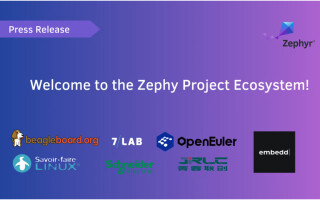The Essential AI Frameworks You Should Know
December 13, 2021
Blog

A framework is used to help users write and develop applications in an easier and more efficent way, facilitating organization, development, and reuse in the future.
Frameworks are in a constant development process, as well as the creation of different systems to give rise to the characteristics required by new Artificial Intelligence models.
Types of frameworks
A framework serves as the basis for the creation of programs, libraries, and interpreted languages, among others. There are different types that can be adapted to the needs of the project you want to carry out. To choose the one that best suits you, it is necessary to observe what the characteristics are and know the general and specific needs of what we want to do.
The rise and development of this work environment is mainly due to the creation and development of different types of smart devices.
Open source
Open Source frameworks are open source software, that is, the source code that composes it is published openly, under a free use license that allows people who use it to use and modify it without having any type of license for Copyright.
This means that a developer can use an open source code and use it in the same way, reduce it, modify it, and improve it. They are based on the collaborative methodology.
There are several popular open source software today, among which we can highlight:
- Tensorflow - has tools, libraries, and resources that allow you to easily promote and apply new processes based on Artificial Intelligence.
- Apache SystemML: created to simplify the process of scaling algorithms from a language such as R or Python, generally used for the use of small data volumes, to a Big Data system such as Scala.
- Torch: Based on the Lua programming language, it is an open source learning library offering excellent deep learning algorithms.
Google AI
The internet giant has different frameworks that allow the development of different work environments depending on the needs of each developer.
One of them is Neural Structured Learning (NSL). NSL allows generating models of neural graphs and applying supervised, unsupervised, or blended AI training techniques to generate different predictions.
Another framework that Google has developed is Flutter. Flutter is an open source UI software development kit for users creative native mobile applications, both Android and iOS. It is also used for creating cross platfrom applications, such as Android, iOS, Linux, Mac, Windows, Google Fuchsia, Web platform, and other web applications from a single codebase.
Microsoft Azure Cognitive Services
Microsoft has also developed its own frameworks to help developers create smart applications and facilitate their creations.
Within the catalog of frameworks of Microsoft Azure Cognitive Services, you can find five main pillars: vision, voice, language, web search, and decision.
Amazon IA
Amazon is another internet giant that could not be left behind in the development of artificial intelligence frameworks that are easily adaptable to the needs of companies.
Amazon offers a broad set of products ranging from computing, storage, databases, and business applications.
Artificial Intelligence tools
If you look around you can see amazing things are happening. Self driving cars and AI voice assistants, such as Alexa, that are capable of detecting our voices and answering our questions.
Although Artificial Intelligence has significant potential, executing software development projects within this area can be difficult. It takes a lot of experience to plan and budget for such projects.
In turn, the development of Artificial Intelligence solutions are not a one-dimensional project either, since you may have to use several ways to achieve the objectives. When undertaking a complex project like this, you need to use the right toolkit, so having a robust set of AI development tools is important.
The best Artificial Intelligence software development tools.
-
Azure Machine Learning Studio
A cloud-based solution where all operations are processed within. With the help of Azure ML, engineers can design functions to improve customer service, set forecasts, predict equipment malfunctions, and many more applications.
- IBM Watson
This is a self-sufficient system that is capable of learning, understanding, and predicting. It can be applied to various fields of science and technology due to its wide functionality.
IBM Watson provides an API for third-party applications and services. Based on this API platform, developers can implement speech-to-text, Machine Learning and data science functions, and follow the result of Artificial Intelligence throughout its life cycle. Additionally, using the Watson Assistant developers can create conversational interfaces in their applications. Thus, IBM Watson aims to create software that simplifies work.
- Google Cloud AI platform
Google is another cloud computing giant that offers an Artificial Intelligence platform. This platform allows users to train machine learning models at scale, more specifically the platform allows users to build, deploy, and manage their machine learning models in the cloud.
- DeepLearning4j (DL4j)
The main calculations are written in C, C ++, and Cuda. This library was developed for business applications. DL4j takes advantage of distributed computing thanks to the Apache Spark and Hadoop frameworks.
- Swift AI
A library created for the Swift language for use on Mac computers only. Swift AI is mainly used for neural network design in conjunction with deep learning algorithms. The field of Swift AI is considered to be the recognition of written speech.
Conclusion
The tools listed offer many advantages and features to help with AI and machine learning, vision capabilities such as object recognition, speech capabilities such as speech recognition, and language skills such as machine translation and knowledge mining.
Harnil Oza is CEO of Hyperlink InfoSystem, a leading mobile app development company. At offices in both USA and India, his team comprises great iOS and Android app developers who deliver high-quality mobile solutions, mainly for Android and iOS platforms. Harnil regularly contributes his knowledge to leading Web sites.





